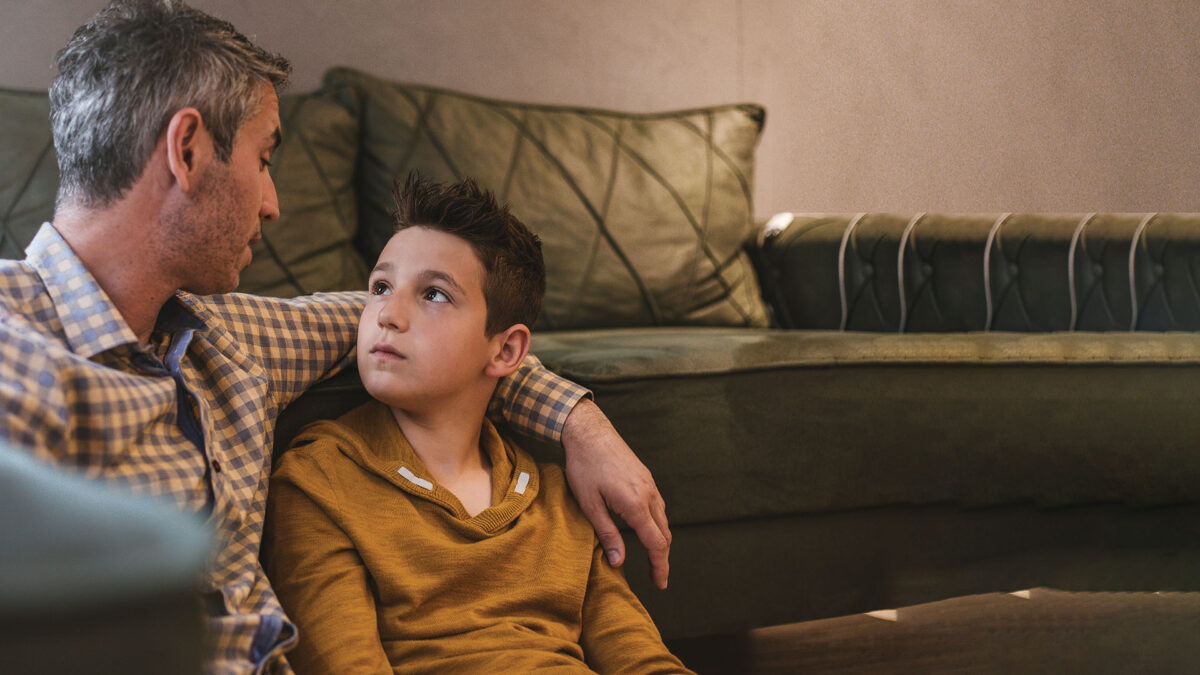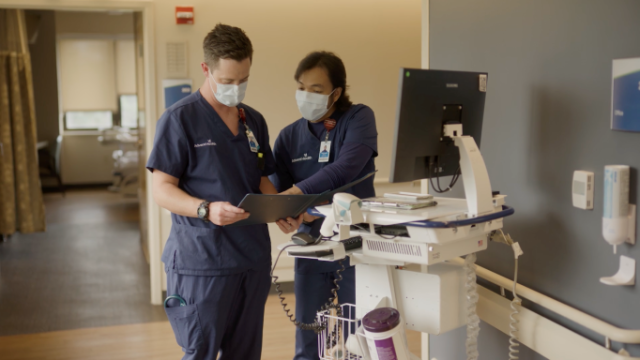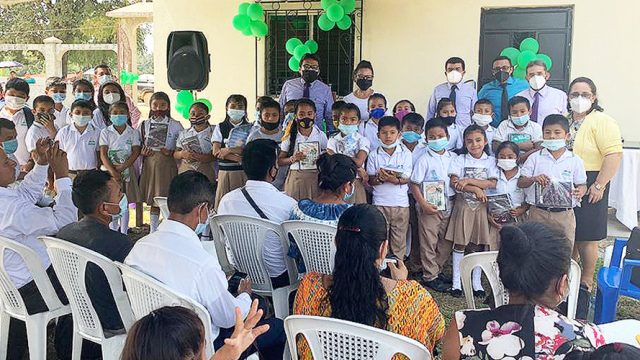Coping with this pandemic together

We are best primed for new beginnings when we pay close attention to all of the things that make us whole. Mental health is a big part of that. Due to the drastic changes we are all experiencing as the pandemic continues, it’s so important for us to seek help and incorporate the advice of medical professionals as we need to. We are all in this together.
—Editors
The impact of COVID-19 on mental health continues to grow. Canadian researchers, who track data from 56 studies on COVID-19 and mental health around the globe, have connected the disease to increased stress, anxiety, depression, and trauma across a variety of demographic groups.
These conditions are not unexpected as people navigate social distancing, economic uncertainty, grief, and fear. My colleagues in behavioral health and I are helping patients and the local community manage feelings related to the pandemic to keep more serious depression and anxiety at bay.
Psychiatrist Chad Lennon, who practices with me at Adventist HealthCare Shady Grove Medical Center, agrees. “We are in an unprecedented time right now, and most people are not sure how to feel. It’s easy to ignore how we feel when we are dealing with something we have never experienced before, and the aftereffects can be detrimental.”
He says strong emotional reactions can emerge after becoming ill with COVID-19 or caring for someone with the disease. Health-care workers, first responders, and others at risk on the front lines can experience trauma. For individuals indirectly affected by COVID-19, all the changes in daily life can still be significant stressors. Stress can impact individuals over time, even if they do not realize it.
People react differently. Some people may experience changes in their sleeping patterns, changes in their eating habits, difficulty concentrating, and certainly fear and worry about their health or the health of their loved ones. And those with chronic health conditions may also see health conditions worsening.
THE TOLL ON CHILDREN AND SENIORS
COVID-19 can weigh especially heavily on children’s emotional wellness. Many don’t fully grasp what’s happening. Their school routine and social lives have been turned upside down. Therefore parents need to explain what’s happening in words children can understand. Parents must make sure children know that they’re safe and that it’s OK to feel upset.
I urge parents to watch children for signs of excessive irritability. Some kids may start acting younger than their age, talk about having a hard time sleeping, or experience nightmares.
They may also avoid things that they previously enjoyed. If these behaviors interfere with their daily life or family dynamics, contact, where available, mental health or primary-care providers or another trusted counselor.
For older adults, who have an increased physical risk of contracting COVID-19, there also are extra mental health considerations. One is the impact of added conflict with loved ones who urge seniors to stay home. These are awkward conversations to have with our elderly loved ones, where the roles are reversed. Families need to keep a united front, with everyone sharing the same messages about social distancing. Reassuring and socializing with older loved ones also are important. Call them, FaceTime, interact, and help them feel connected.
TIPS FOR MENTAL WELL-BEING
I recommend trying a variety of strategies to help maintain mental well-being through these challenging times.
Eat well. Make sure to eat a balanced diet. Avoid the temptation to keep unhealthy comfort foods in the house. Fruits and vegetables are especially important, particularly those with immune-boosting vitamins and minerals. Elizabeth Bilodeau, a registered dietitian for Adventist HealthCare Shady Grove Medical Center, recommends citrus fruits, spinach, red bell pepper, and kiwi to reinforce immunity.
Get enough rest. Try to go to bed at the same time and try to make that bedtime earlier. Waking up at a regular time also is important. Routine is important even though it’s disrupted.
Trust. Worrying about COVID-19 does not mean spiritual weakness. Trusting in God and His power to save, heal, and comfort is important to remember; it is the believer’s unique coping tool. Actively focus on God’s power instead of the pain and suffering from COVID-19. With time, while the suffering may still be there, so will God’s ever-present peace. Remember those who have endured tribulation in the Bible and learn from how they weathered challenges with God by their side.
Exercise. At least 30 minutes of exercise five days a week helps stay physically healthy and boosts mental health. In winter, aim to get activity minutes in natural sunlight and pay close attention to changes in mood or energy levels. Seek help if you have symptoms such as irritability or uncontrollable oversleeping that lasts two weeks or longer.
Limit media intake. Overexposure to news stories or sifting through mixed messages on social media can trigger traumatic stress symptoms. Read or watch just enough news to stay informed, then move on to something enjoyable.
Stay connected with people. Even though we are physically distant, we need social connections now more than ever. Technology can be a great tool to keep in touch with friends and family. Check in with loved ones several times a week to keep lines of communication open. In this time of isolation, it can be hard to connect, but it’s important to talk to friends and family members about how you feel. They may feel the same and you can work through it together.
Create a self-care kit. Having a list of activities or items that bring joy can make all the difference in helping to cope as we progress through this crisis. Do whatever brings hope and inspiration.
Be kind to yourself. Don’t feel as though you must tackle home renovations, be the best homeschool teacher, learn a new language, or any of the other things you may see on social media. Do the best you can. Focus on keeping you and your family healthy.
Seek help. If you need to talk to someone, many health-care professionals offer telehealth and online counseling services. If you don’t know where to start, ask your primary-care doctor for help.
As we process this experience that is COVID-19, know that we are not going through this alone. We will heal from this together.








